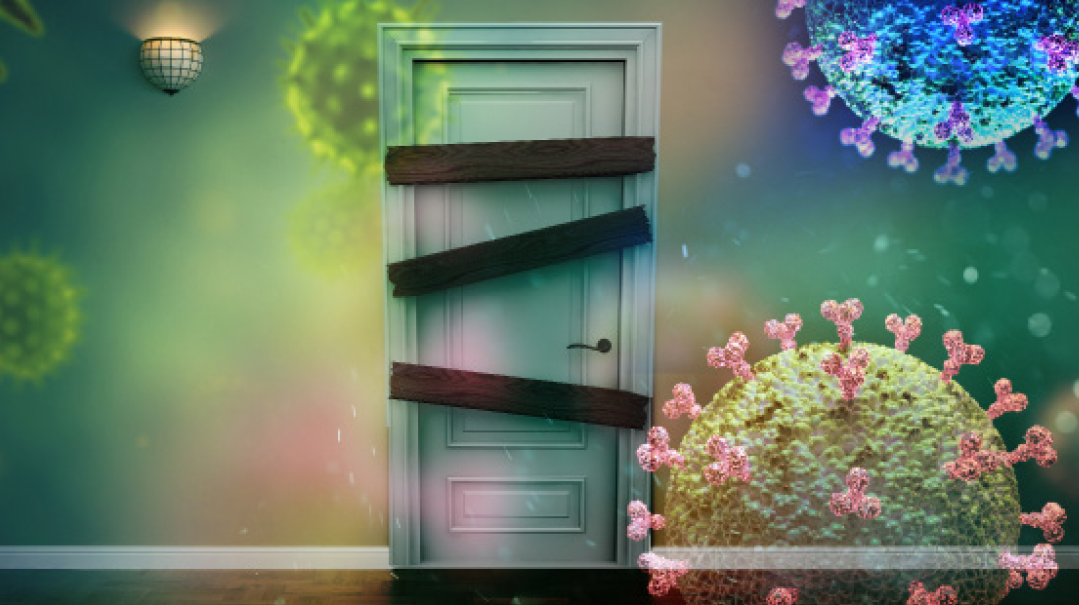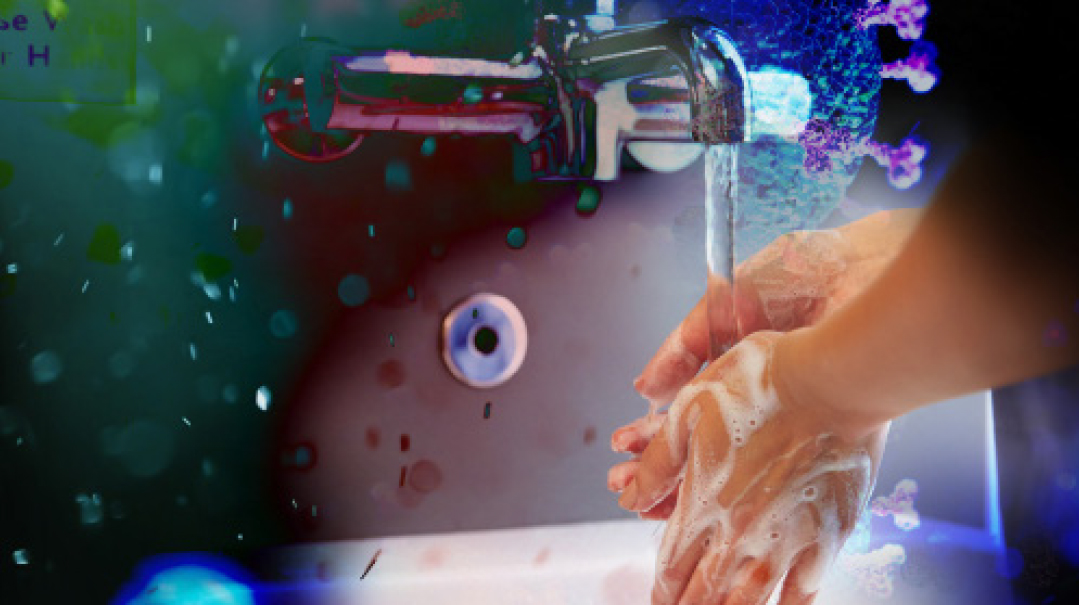On the Front Lines

“The only way we’re going to get through this is by staying positive,” I told everyone through gritted teeth

It started with an e-mail from Ricky: Hi, Zivi. Any secrets for how to stay sane with the kids home?
I hit reply My kids are planning Camp Corona. It even has a theme song: “Corona, corona,” to the tune of “Charvonah, charvonah.”
(I told them it’s not appropriate, but that didn’t stop them.)
She was suitably impressed. What activities are planned for Camp Corona?
So, that was more complicated. Basically, we’re going to clean for Pesach and eat all the toilet paper and water bottles we stocked up on.
Ricky and I were not alone. My sister was the next to text me: What scares me most about this lockdown is the thought of my kids sitting at home all day with their piles of Purim nosh.
Food, right. I sent my husband to the store with instructions to “buy a lot of formula.”
“How much formula is a lot of formula?” he asked.
“Enough to last us until the baby starts solids, approximately,” I said.
*****
Day one, we cleaned for Pesach and finger-painted. It was almost idyllic. Everyone went to sleep tired but happy, and I had all sorts of romantic fantasies about family time and bonding.
Day two, we schlepped out a bunch of musical instruments. Less idyllic, lots of tears, because the members of the family who could actually play recognizable music were far outnumbered by those who couldn’t. The Corona Concert had great optics — I managed to snap a few shots before anyone started crying, but the band was soon disbanded.
“The only way we’re going to get through this is by staying positive,” I told everyone through gritted teeth. By the third day, my kids were symptomatic, and “positive” took on a whole new meaning.
Unable to leave the house, we escaped to the back deck, where we discovered a chuppah set up in the yard facing ours — a corona kallah. There was music and contact-free dancing — and a cop patrolling in front to make sure no rules were broken.
My husband and I were working remotely, which is to say, the chance of us working was remote. Besides the sick kids, the baby had a double ear infection. And then there was the news, all day long, the news and the updates and the recorded warnings, getting worse and worse as time passed.
Fortunately, we had a fully stocked pantry, fridge, freezer, and storage closet, not to mention all that Purim nosh. Still, I was getting complaints. “There’s nothing to eeeeeeat,” the kids whined.
“Have some formula,” I replied.
At midnight, when my oldest was still up and the two-year-old was already up, I announced I was going for a walk. I put on my coat and opened the front door. It was raining. I went anyway.
I drank in the fresh, cold night air. The relentless confinement had left me dazed and off-balance, and the squares of cement seemed to slide under my sneakers, gliding me forward. The rain sparkled on everything, dotting the blackness like stars, so the night sky melted seamlessly into the glistening asphalt. And the dichotomy we were living suddenly became clear.
On the one hand, global civilization is in the fight for its life.
On the other hand, we’re stuck in the house with the kids all day and going bonkers.
People are getting sick. People are dying.
People are getting married.
It’s not a joke, but you joke about it all day long.
The paradox is evident even in this article: With everything falling apart around us, who can work on a magazine article? And yet, I was never so desperate for the escape reading provides.
The mundaneness clangs against the desperation, so you go about your daily tasks. Wash the dishes, wash the laundry, crack an egg, crack a joke — while the apocalypse bears down. Because really, what else can you do? Not cook supper?
You say extra Tehillim, and you mark up the charts your kids brought home from school, and you turn on the music and dance the corona-dance and you think, I can’t believe this is what I’m doing now.
But when it quiets down for a minute and your head clears in the cold night air, you remember when you felt this before.
My first child was a Yom Kippur baby; I haven’t been to shul in years. No matter what’s going on — Kol Nidrei or Ne’ilah, a simchah or a shivah, Erev Succos or Motzaei Pesach, I’m basically always doing the same thing: taking care of my family.
*****
When my second child was born, I was totally overwhelmed.
I didn’t tell anyone, of course. All around me, people had four kids and five kids and nine kids. I had two, I didn’t think I was going to qualify for sympathy from anyone.
Then my sister-in-law Chaviva called. “How are you doing?” she asked, in the standard formula.
I said my line: “Fine.”
“Zivi,” she said, “you are a hero.”
I laughed politely.
“I mean it,” she said. “Just because everyone is doing something, doesn’t make it easy. You have two little pitzelach, you work, you run the house. It’s a lot. It makes no difference if other people have more kids. Don’t minimize what you’re doing. You’re a mother, you’re a wife, you’re a daughter. You’re a hero.
“Tell it to yourself every day,” she added, “because no one is going to tell it to you. Look in the mirror and say, I am a hero.”
So that’s what I want to say to every parent now: You’re a hero. Yes, you’re stuck at home with the kids, and yes, that’s way better than being stuck in isolation or the ICU. Yes, there are people who are really sick, and people who are fighting to get treatment for their loved ones, while all you have to deal with (I hope) is figuring out how you’re supposed to work and entertain the kids and why their class conference line keeps crashing.
But just because it could be worse doesn’t mean this is easy. You’re not on vacation, you’re on the front lines. Look in the mirror and tell yourself every day: I am a hero.
Stay well, and keep dancing.
(Originally featured in Family First, Issue 687)
Oops! We could not locate your form.









